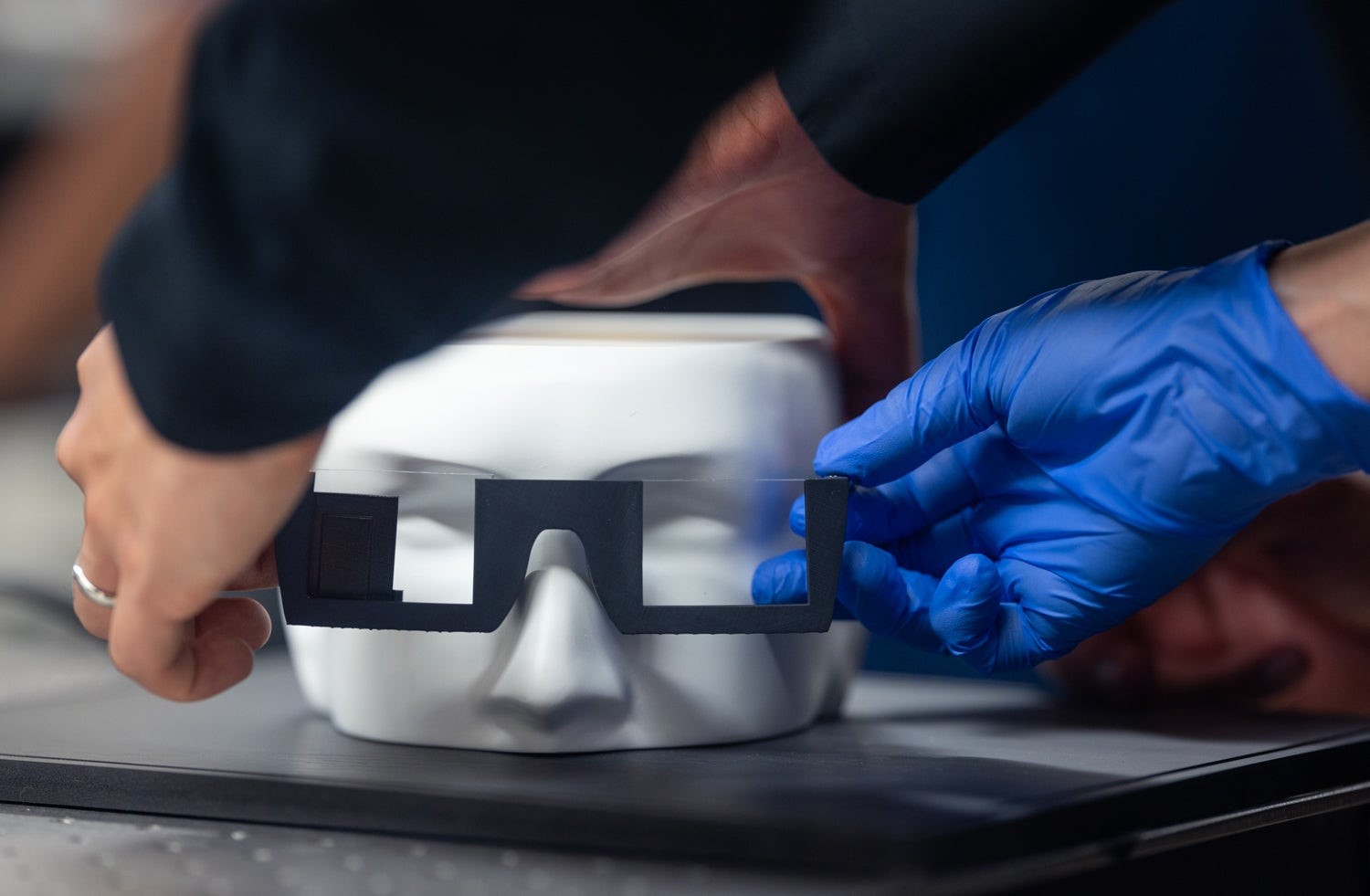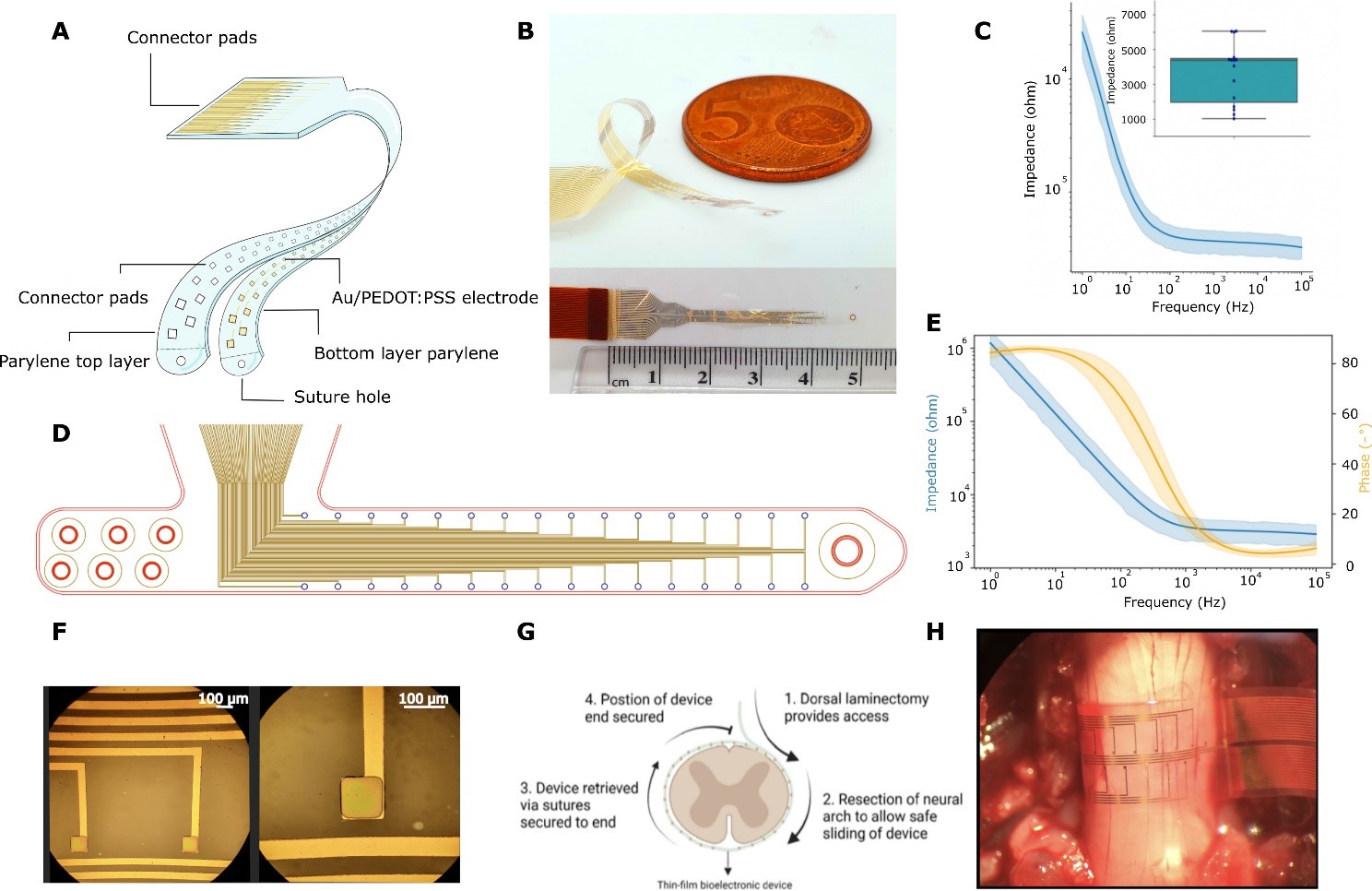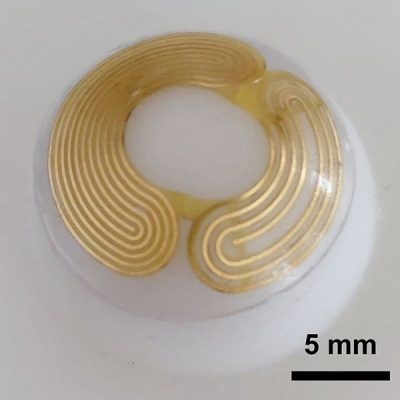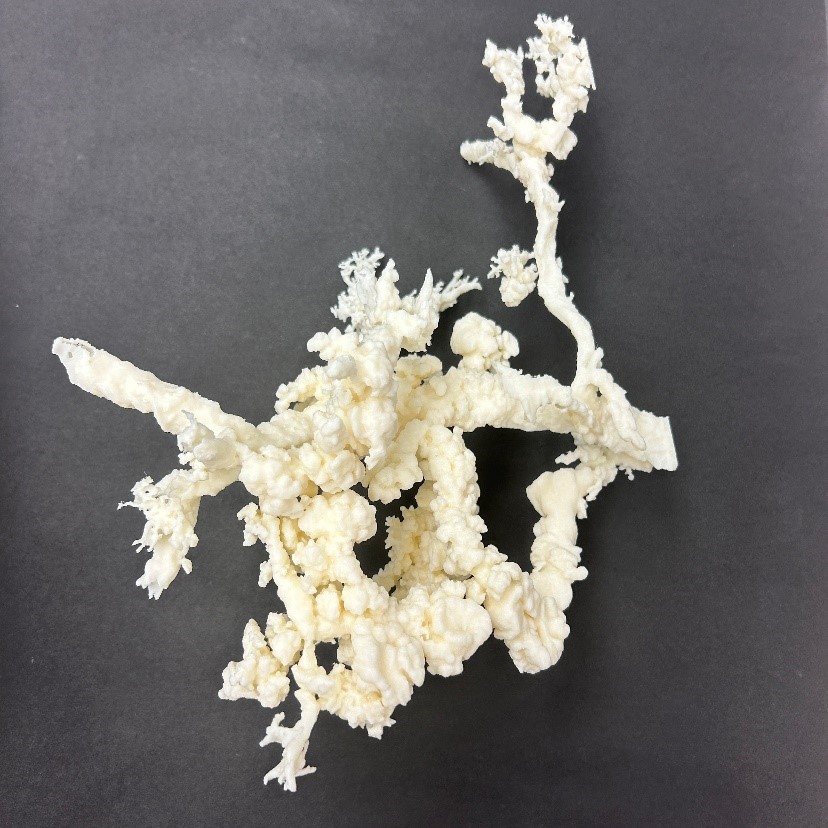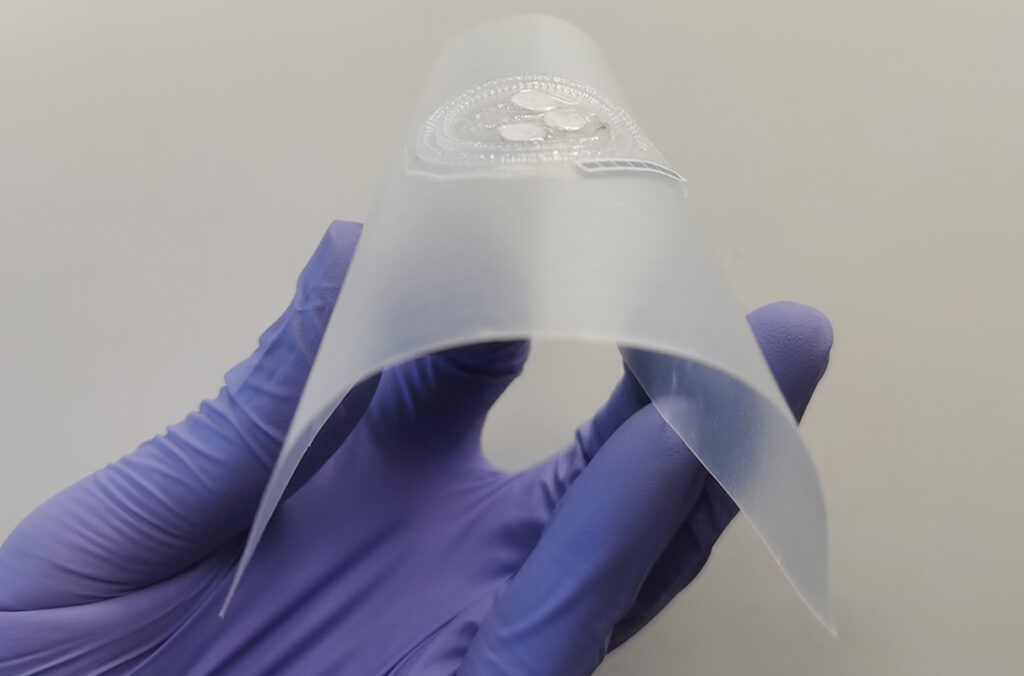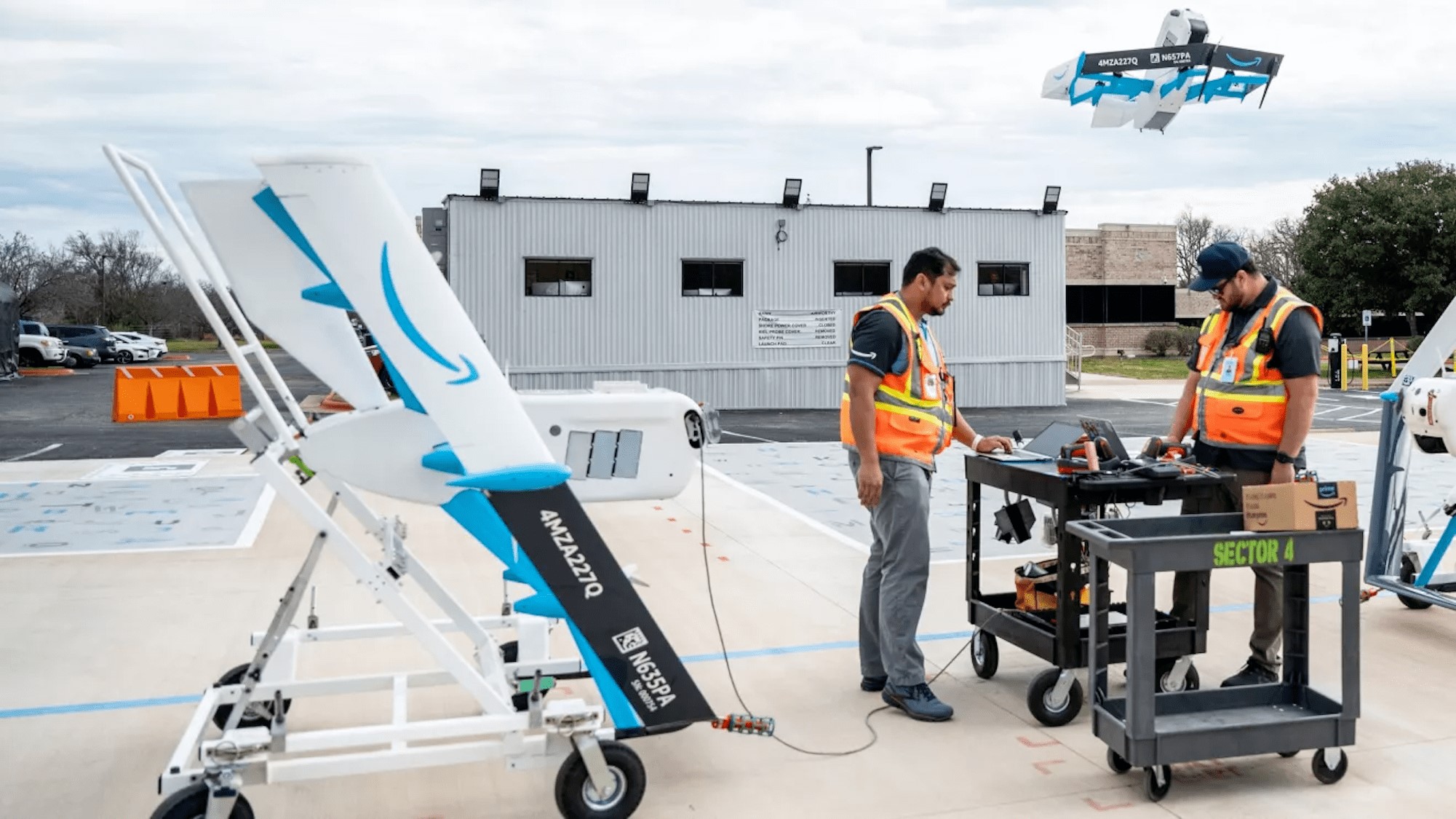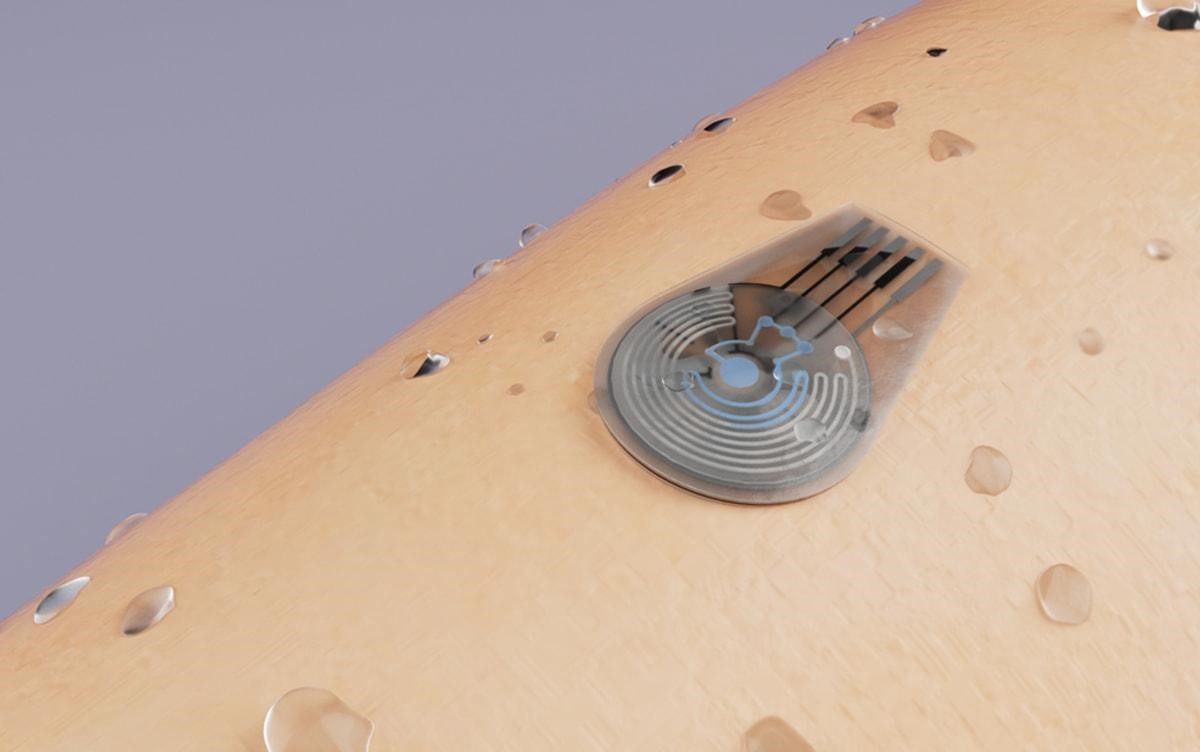The Wearable Aptalyzer for Continuous Health Monitoring
Researchers from McMaster University and the University of Waterloo have jointly developed a non-invasive wearable sensor capable of continuously monitoring levels of blood sugar, lactates, and other critical health indicators over extended periods. This innovative device, known as the Wearable Aptalyzer, utilizes tiny hydrogel needles that penetrate just deep enough to reach the interstitial fluid beneath the skin, ensuring minimal discomfort as they avoid blood vessels and nerves.
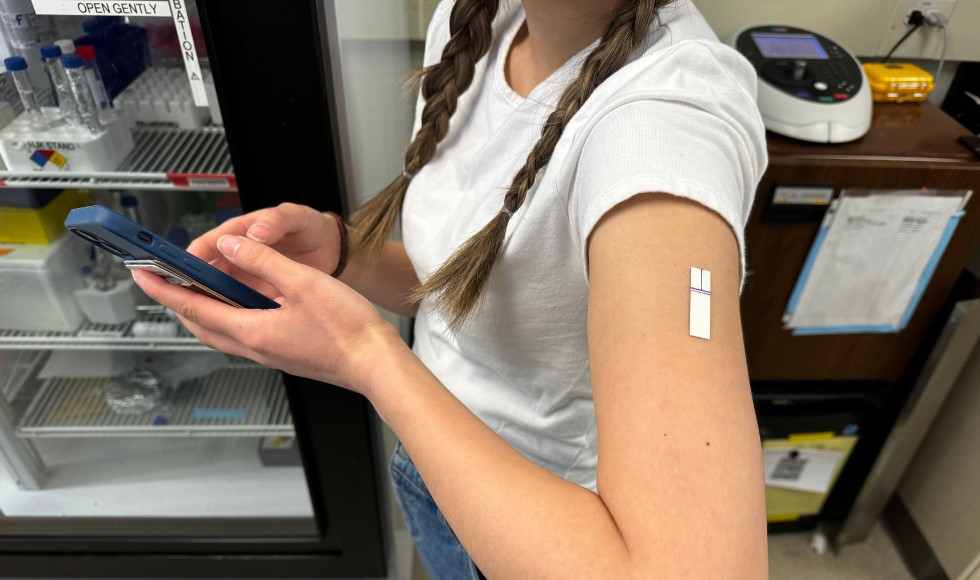
Figure 1. The Monitoring Patch. (Credit: McMaster University)
The sensor collects and transmits data about biomarkers in the interstitial fluid to electronic devices such as smartphones, enabling real-time tracking and creating comprehensive records of biomarker fluctuations. Once adapted for clinical use, this technology promises to provide healthcare professionals with immediate access to current medical information, which traditionally requires retrospective blood tests and lab work. Figure 1 shows the monitoring patch.
The researchers highlight that the Wearable Aptalyzer can offer real-time insights into both chronic and acute health conditions, facilitating quicker and more informed responses from caregivers when issues arise [1]. According to Leyla Soleymani, corresponding author and McMaster professor specializing in Miniaturized Biomedical Devices, the device serves as a versatile platform capable of measuring various biomarkers relevant to diseases ranging from diabetes to cardiac health.
Mahla Poudineh, co-corresponding author and director of the IDEATION Lab at Waterloo's Department of Electrical and Computer Engineering, emphasizes that continuous health monitoring not only aids in early disease detection and treatment tracking but also enhances understanding of disease mechanisms, addressing critical gaps in medical knowledge [2].
The Wearable Aptalyzer is designed for user-friendly application and removal, akin to a small bandage secured with soft hooks, appealing particularly to individuals like diabetics who regularly monitor blood samples. Its ability to provide weeks' worth of continuous data and transmit this information to readily accessible electronic devices underscores its potential in diverse applications, including real-time monitoring of cardiac events in emergency settings and management of chronic illnesses such as cancer.
Looking ahead, the researchers plan to advance the technology through human trials and seek regulatory approvals, aiming to partner with stakeholders for its commercialization. Lead authors Fatemeh Bakhshandeh and Hanjia Zheng, along with their co-authors, envision the Wearable Aptalyzer as a transformative tool capable of improving healthcare delivery, particularly in remote and critical care environments.
Source: McMaster University
References:
- https://onlinelibrary.wiley.com/doi/full/10.1002/adma.202313743
- https://medicalxpress.com/news/2024-06-painless-wearable-patch-smartphone-critical.html
Cite this article:
Hana M (2024), The Wearable Aptalyzer for Continuous Health Monitoring, AnaTechMaz, pp. 265



